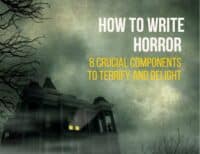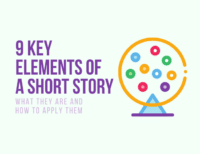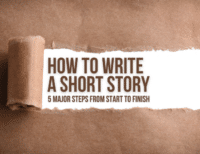I’m prepping for a new novel that I’m super excited about. My characters are floating around in my head, becoming more real as I write my first draft, and I have a decently detailed synopsis written.

My problem: I know next to nothing about my setting and my main character’s profession. Which means I need to do massive amounts of research. Yes, I have to conduct research for a book, even if it's a novel.
You might think you don’t need to do much research because you’re writing fiction. (Isn't fiction just making stuff up?!) You’d be wrong.
Your readers expect to be transported to your setting and to understand your characters so fully, they seem like real people. Little things like using the wrong jargon or having your main character wear the wrong type of bodice can jar your reader out of the story and cause them to lose respect for you as a writer. If they can’t trust you to get the facts right, why should they trust you to guide them through a story?
Like it or not, research is a writer's best friend. (Next to caffeine, anyway.) So let's talk about how to conduct research for a book.
The True Purpose of Research for Fiction
When you first start the research process for a novel, you’re going to be looking at the big picture. You want to get a general overview of the time period, location, and/or character profession. You want to immerse yourself in everything you can find that comes within your story's scope.
This isn’t because you’re going to regurgitate all that to your readers. It’s because you need to have a clear picture of what’s going on in order to successfully write your story. All of your research is for you so that you can translate your world to your reader.
It will also help speed up your writing process, since you'll know the details you need to include without getting bogged down in how something should work in your story.
Don't mistake this with the thought that you need to include everything you research in your book (especially if you're writing historical fiction, which can require more research than other genres).
Book research is a tool that should serve your story, not the other way around. You’re not writing an academic paper, so resist the urge to shove everything you’ve learned into your story. You’ll end up info dumping if you try.
Your story is the main purpose and your research should support it, not overwhelm it. Choose what you need to further the story and leave the rest.
How to Conduct Research for a Book
Okay, let's get to it! Here’s how to get started with researching your novel:
Lists are your friends
Because you’ll be dealing with a vast amount of (mostly useless) information, the first thing you need to do is get organized. Some fiction writers like to use Scrivener to keep track of their research. Others might use Evernote.
Really, the writing software you want to use is based on your preference of documenting subject matter.
It could be as simple as detailed notecards or thoughts in a journal.
Whatever method you use to research your own work, you'll want to make lists.
Do this for everything you need to look up. You don’t want to forget something hugely important and have to spend a lot of time in the middle of writing your novel to look it up.
In my case, my setting is on a small island and my main character is a commercial fisherman. I need to know island life, weather patterns, boat types, fishing jargon, etc. I have memoirs and nonfiction books about the area and the fishing industry. I’m reading them cover-to-cover, not because I’ll end up using all the information, but because I need to establish an overarching picture for myself.
If I can’t mentally place myself there, I can’t place my readers there.
Where can you collect these lists? Tons of places, some including:
- Local libraries (are also your friends)
- Field research (find someone who has had a personal experience in what you're writing)
- Search engines like Google (for setting, you might explore Google maps—just don't get too distracted and waste a ton of time here)
- Wikipedia (but make sure you fact check)
- Podcasts about what you're writing about
- Other books from bestselling authors (as long as you don't plagiarize content)
Establish a system
You need to be able to call up your research as needed, so establishing an organized, consistent system of keeping track of everything you’ve learned is a must.
Personally, since I spent so many years in school, I go with the standard method of taking notes (in a notebook that only serves my current project and nothing else) and then highlighting and sticky-noting facts I definitely want to use. There are plenty of note-taking apps out there if you'd rather not be so old school.
For fun, try establishing a system for a short story first. This decrease the pressure on trying out the same system for a longer creative writing work.
If the system works well for you, take it to the next level and use it to write a novella or novel.
Expand your idea of research
Don’t just scour the internet. Get a book. Better yet, get twelve. There’s no such thing as researching too much.
Talk to your librarian or a book seller (they’re magnificent at helping with this). Watch documentaries and YouTube videos. Look at pictures. Talk to people in person or online. Go to a museum. Read fiction novels that cover similar ground. Find all the information you can on your subject.
First-hand experience is always best, but don't worry if you can't afford a trip to France for your quirky French bookstore novel. You can go to a French restaurant. The taste of the food, the smells, and how the waiter pronounces the menu items are all fodder for your story.
Pay attention to details when you’re out and about. You never know what might inspire, fill in plot holes, or add an interesting tic to your character.
Stop researching
Once you have a solid overarching picture of your setting and your characters, stop researching and start writing. You can’t spend months researching without writing a word. That’s not writing. At some point, you have to put away the research and get moving on your novel.
You know you've researched enough when you already know the information you're reading in the umpteenth book you've checked out from the library.
(Hmm. Library again. A pattern, maybe? Seriously, ask your librarians for help.)
Remember how I said all this research was for you? Eventually, you'll have enough information. You have all that in your head (and hopefully in a nicely organized set of notes), so when you go to write, you’ll be able to recall details as you go along.
Your understanding of your setting, era, and character's profession is what will give you the ability to weave details seamlessly and organically into your story.
This goes for your first novel, up until your last one.
A Caveat
While it’s true you shouldn’t have to research anything major after you begin writing, you will find you need to look up some minor details as you delve into your story. There will always be some iota of information you don’t know you need until you need it. For instance, the most common types of knots fishermen use or the instruments on a surgical tray in an operating room.
These are things that are important to get right but are most likely not important to the flow of the story. Don't interrupt your writing flow to go back to researching for weeks on end.
When you come across the need to know something minor, make a note and keep writing. You can always look up small stuff later. Keep writing!
What's your favorite part of researching? What do you struggle with? Let me know in the comments!
PRACTICE
Today I want you to do something a little different. I want you to think of a story you want to write. Any story, any genre, but it must be in a setting you don't know much (if anything!) about. Take fifteen minutes to brainstorm a list of things you'd need to research in order for that setting to come alive for your reader—and you!
Share your list in the comments and see if you can help your fellow writers think of anything else they need to look up!








0 Comments
Trackbacks/Pingbacks